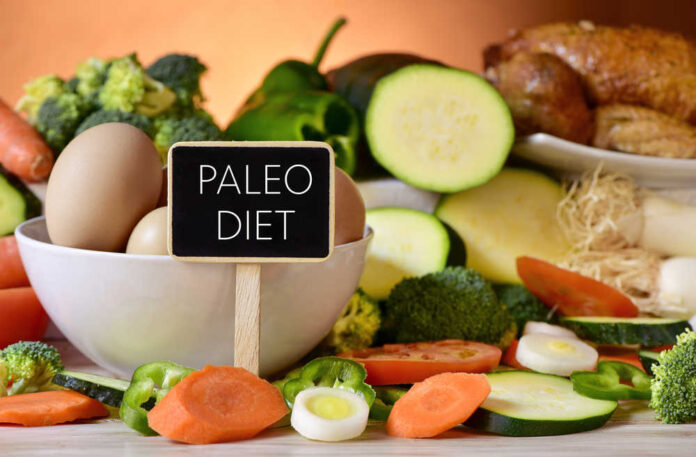
The Paleo diet, also called the “caveman” or “stone-age” diet, began a few decades ago with an interesting question:
With all our technological and industrial food production advancements, are we any healthier than our stone age ancestors were?
The Paleo diet suggests that we are not—these “innovations” have actually led to a decline in our nutritional health.
The Idea Behind the Paleo Diet
The Paleo diet is based on the idea that our human bodies did not evolve to eat the kinds of foods that are available to us today.
Processed foods, bread, dairy, and sugar are all relatively recent additions to the human diet.
The Paleo diet suggests that we would be better off if we stuck to eating the kinds of foods that our ancestors ate:
- lean meats
- fish
- vegetables
- fruit
- seeds
- nuts
- whole grains
- beans and legumes
- mushrooms
- eggs
Any foods that would not have been available to a caveman are off-limits on the Paleo diet, including:
- bread
- pastries
- cookies
- candy
- fried foods
- processed meats
- soda
- dairy
Even though the Paleo diet may be an oversimplification of actual paleolithic human nutrition—different human populations ate different diets, depending on their local climate and available resources—it still can be a useful way to think about which foods may be healthiest for our bodies.
Health Benefits of the Paleo Diet
If you normally eat the “standard American diet” (high in sugar, unhealthy fats, and processed foods, and relatively low in fruits, vegetables, and whole grains), then switching to a Paleo diet may have some health benefits.
Processed foods are closely linked to various health problems, including obesity, heart disease, type 2 diabetes, and cancer. Removing them from your diet can be very helpful.
The Paleo diet is also high in fiber, which can help to improve digestive health, regulate blood sugar levels, and reduce cholesterol.
Eating more vegetables and fruits will also increase your intake of antioxidants, which can help to protect your cells from damage and reduce your risk of chronic diseases like heart disease, cancer, Alzheimer’s disease, and type 2 diabetes.
Paleo dieters who eat fish and seafood can also get a good dose of healthy omega-3 fatty acids, which are essential for brain and heart health.
Switching to a Paleo diet can also potentially help you lose weight by making you feel fuller with fewer calories and encouraging you to eat less processed, high-sugar foods.
Is It Right For You?
The Paleo diet is not perfect, but it can be a helpful rule of thumb for thinking about which foods to eat and which to avoid. If you’ve struggled with counting calories or feeling deprived on other diets, the Paleo diet may help you to eat more nutrient-dense foods and feel more satisfied without the stress of calorie counting and portion control.
However, people living with or at risk for developing high blood pressure, high cholesterol, or type 2 diabetes should talk to their doctor before starting a Paleo diet, as the high intake of saturated fat can potentially worsen these conditions.
But generally, eating more vegetables and reducing your intake of modern novelty foods like fried meats, soda, sugary snacks, and refined grains will likely have health benefits—whether or not you follow a strict Paleo diet.






















